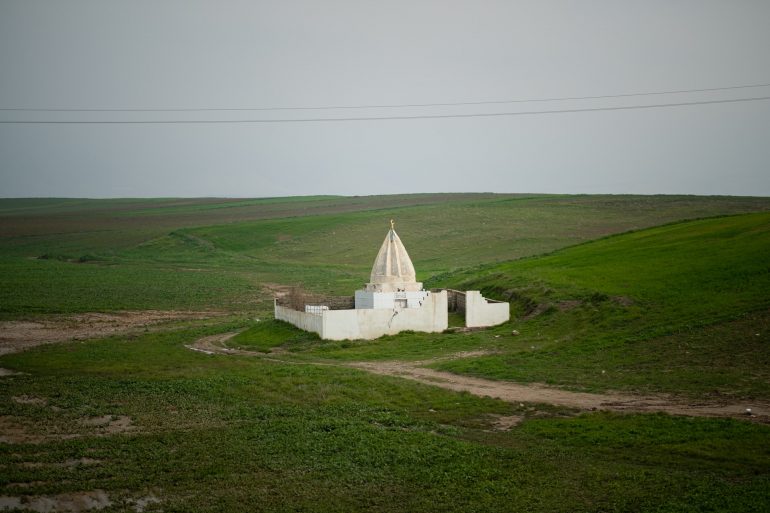The US administration has designated Iraq for inclusion on its ‘Special Watch List’ (SWL), identifying nations that have “engaged in or tolerated severe violations of religious freedom” and persecution of minorities in the preceding year.
The United States Commission on International Religious Freedom (USCIRF) has released its annual report, which includes a critical country report on Iraq. The report expresses concerns about religious freedom and criticizes both the federal authorities and the Kurdistan Regional Government (KRG) for their approach to religious minority issues.
In the report, 17 states were listed as Countries of Particular Concern (CPCs) which means that the government of that country “has engaged in or tolerated particularly severe violations of religious freedom”.
Meanwhile, 11 others, including Iraq, were placed on the State Department’s SWL.
The USCIRF, an independent, bipartisan federal government entity, monitors, analyzes, and reports on threats to religious freedom worldwide.
The report praised the new Iraqi government for formally recognizing Yazidis’ ownership of residential properties in northern Iraq’s Sinjar district for the first time in 47 years. However, it noted that political stagnation throughout the year hindered other initiatives benefiting vulnerable religious minorities.
The USCIRF found that the government inadequately implemented the Yazidi Survivors Law (YSL), passed in 2021 to provide reparations for victims of ISIS, including Yazidis, Christians, Turkmen, and Shabaks.
The report also mentioned that both Baghdad and Erbil, who each claim Sinjar, failed to execute the provisions of the 2020 UN-brokered Sinjar Agreement, intended to stabilize the area and enable the return of Yazidis displaced by Islamic State (IS)’s genocide.
Although the KRG is praised for promoting religious coexistence and serving as a refuge for over two million displaced, religiously diverse, Iraqis and Syrians, some indigenous Christian groups from the Nineveh Plains raised concerns, the report says.
It cited the KRG’s failure to resolve long-standing grievances, such as lack of funding and support for Assyrian-run schools, discrimination in employment and municipal services, and unresolved “misappropriation” of Christians’ land, businesses, and other property.
“Christian residents cited their lack of security and threats from ISIS, the Popular Mobilization Forces (PMF)/Popular Mobilization Units (PMU), and the KRG as the main drivers of emigration from the area, bringing their ancient communities almost to the point of extinction,” the report stated. Similarly, Yazidi genocide survivors feared returning to Sinjar, caught in the stranglehold of competing militias, and remained in displacement camps prone to fire and other hazards.
The report emphasizes that “political representation remained an important concern for religious minorities,” pointing out flaws in both Baghdad and Erbil’s quota systems for elected representatives from minority religious backgrounds. Some minority advocates suggested amending existing quotas to ensure effective, meaningful representation instead of symbolic and vulnerable representation.
The report adds that in February, the Federal Supreme Court (FSC) further limited the political representation of Yazidis, Shabaks, and Feyli Kurds, forcing these minorities to campaign within the already circumscribed Christian and Mandaean components.
The report explained that in Baghdad, confessional political and religious groups leveraged the ethnic and religious political quota system, the Iraqi Constitution of 2005, and later laws, including religion-specific endowments, to misappropriate and alter religious heritage sites. It also stated that the KRG’s “land grabs” of indigenous Christians’ villages and sites prompted continued displacement and migration.
The minority quota system has recently become a hot topic in the Kurdistan Region, with the Kurdistan Democratic Party (KDP) accused of exploiting the system and voting in proxy parties via its security forces. The Conquest Alliance (Fatah) in Baghdad, the political wing of the Iran-backed PMF, is also accused of doing the same with Christian quota seats.
The USCIRF report concludes with several recommendations to address the challenges faced by religious minorities in Iraq and the Kurdistan Region.
These recommendations include “improving political representation by amending the minority quota system to ensure effective and meaningful representation and enhancing the protection of cultural heritage sites to prevent misappropriation and sectarianizing.
It also called for addressing long-standing grievances of religious minority communities, such as discrimination in employment, education, and municipal services and promoting religious freedom and coexistence by fostering dialogue and cooperation between the Iraqi government, the KRG, and religious minority stakeholders.


